I have been behind plastic trowels from the year dot, and you can read about all my experiences with them on here and also on The Plasterers Forum. I have always liked how plastic trowels finish multi finish and how easy it was on your joints as you don’t need to apply the pressure like you would with your standard trowel.
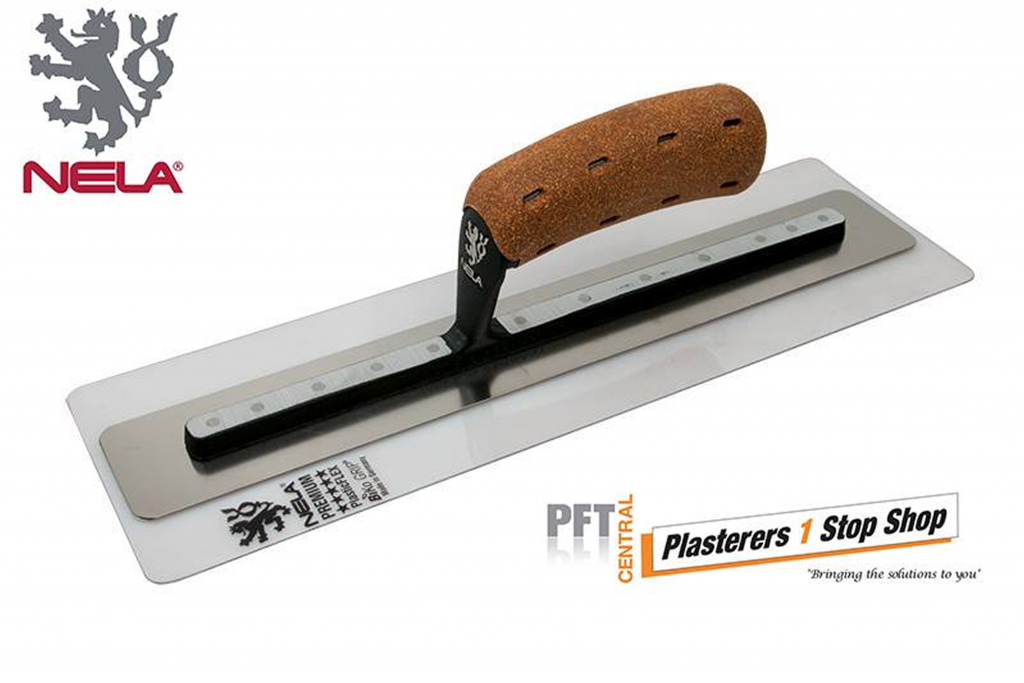
I arrived with the hope of just going in and skimming the ceiling and then leaving, but the builder was a little behind schedule, and so I had to tack the ceiling first, which was fine but boy did the boards feel heavy. It has been nearly a year since I have needed to lift a sheet of plasterboard let alone above my head.
The ceiling was tacked, and I had also used the luminous orange Catnic Scrim tape as well, which was remarkably sticky, and I quite like the fact its bright orange made seeing where you had been a whole lot easier and more to the point seeing where you had missed.
The plastic trowel is really only used for finishing, and before I arrived at the job, I found some wet and dry paper and whipped over the trowel to take any rough edges off and generally make sure she was in tip top condition. This took a matter of minutes and arguably probably did not need doing, but I am a little odd and did it anyway.
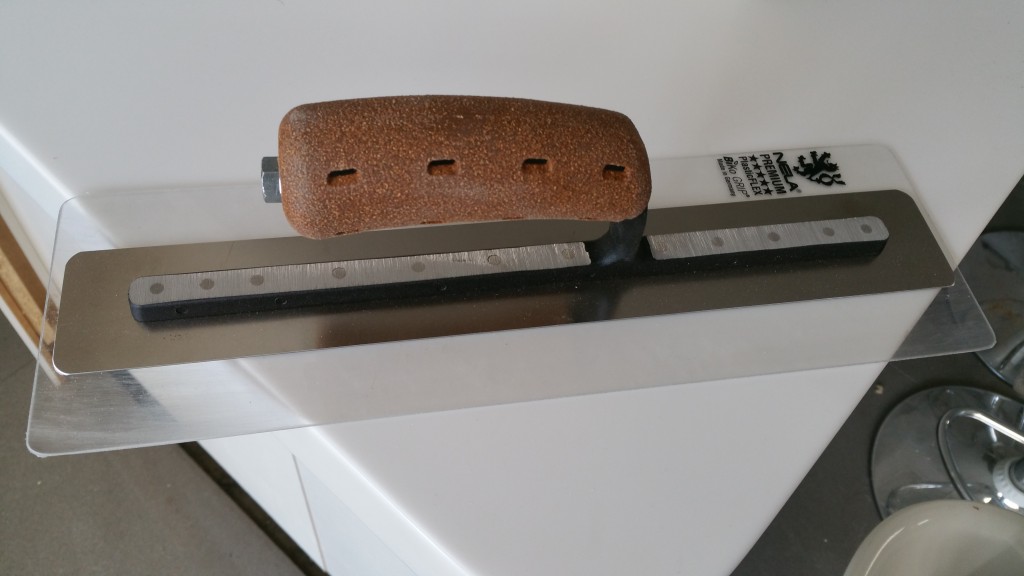
So the ceiling went on nicely as it would over plasterboard, and I applied the first coat with a 14 inch stainless NELA Trowel that I am also trying to break in. While I was there I decided to put on a few awkward reveals and a little wall on as well as I had spare plaster. Once that had firmed up, I licked over it with an 18-inch Marshalltown trowel and a tidy up around the edges as needs be. Yes, I said Marshalltown, I know I am a massive NELA fan, and I mean a huge NELA fan but my 18-inch Marshalltown has been with me from the year dot and when I try other 18s, I just don’t get on with them so this is always a trowel I would use now regardless.
Second coat got thrown on and flattened in and then wait continued for the plaster it started turning… at this point I have not touched the plastic trowel yet. All edges are looking good and a quick tidy up of tools and get ready for the troweling up stage. What I mean by tidying up is that I sat and had a cup of tea while staring at the ceiling.
The second coat is now firming up lovely, and its ready for a quick flatten and the NELA PlasticFlex took it in its stride, and it did exactly what I was expecting, and it was nice to use. The ceiling troweled up nicely and did not need any water other than keeping the trowel clean. Although I did over trowel it as it was way more polished than I would normally leave any skimmed surface but I will tweak my method the next time I use it.
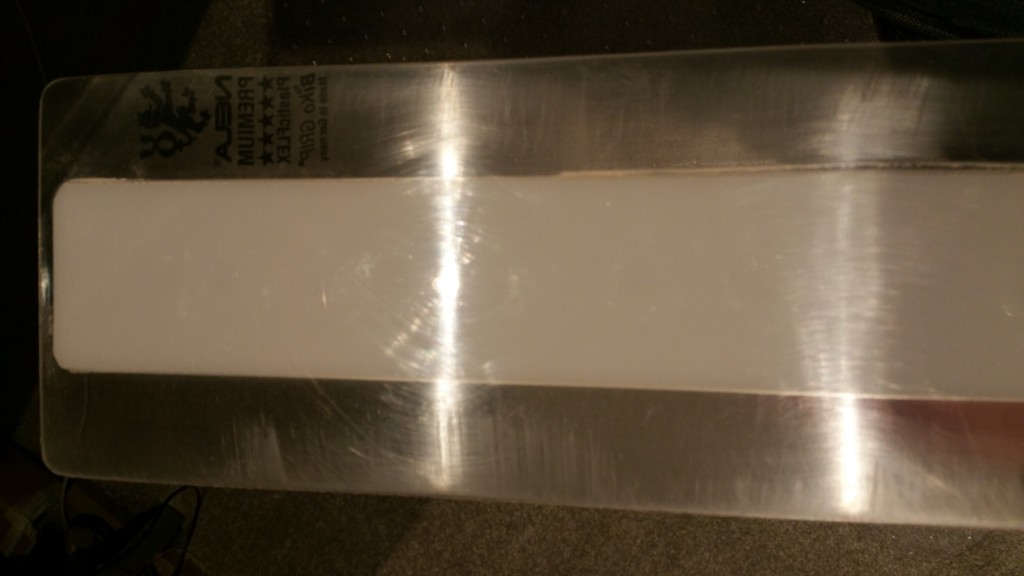
I did have to keep swapping trowels when troweling up the walls as I did not want to damage the plastic blade on the NELA PlasticFlex. Although that being said I did run up and down the bead once by accident, and it did damage but not as bad as my previous plastic trowel.
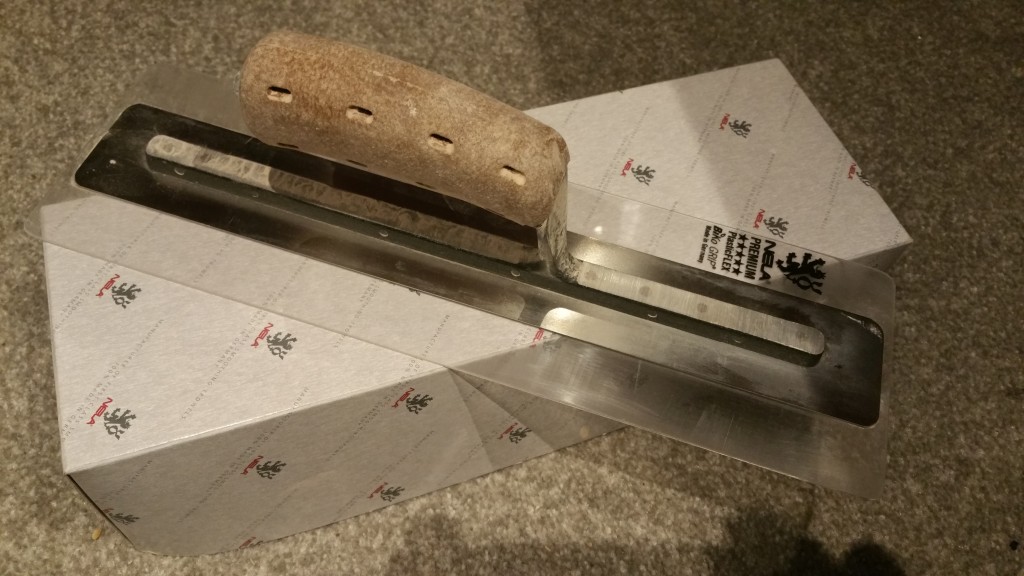
I was using both the NELA PlasticFlex and the NELA SuperFlex side by side and something really did start to play on my mind, and that was that there was very little difference in the trowels.
So what was the point of the plastic?
By the time I finished the ceiling I was sat there thinking what was the point and was I just using the plastic trowel for the sake of using it? I honestly think I was…
It looked great, and it feels great and does everything it is meant to do, but it was the same as the SuperFlex trowel, and the SuperFlex is a lot more durable than the plastic trowel.
So my verdict….
I loved plastic trowels in the past and have been right behind them as you all know, and then I was blown away by a flexible Japanese trowel which superseded the plastic trowels and subsequently the NELA SuperFlex came out, and I am pretty certain that the NELA SuperFlex cannot be beaten. Not even with plastic… bold statement I know…
It’s a great addition and well worth the punt as I know they are not going to be expensive, They are useful on curves and barrel ceilings, but for now I will be sticking to my NELA SuperFlex. I would say to give it a go and try it, and if you don’t like it, you can stick it on eBay or give it to someone else to try.
Some are saying they prefer it over the NELA SuperFlex and like all things plastering related it is purely down to the user and what you “feel” is best. I do think its a great trowel and Ideally I would like to see if I can get them both working in harmony together but that will take a bit more time to refine.
What would I change on The NELA PlasticFlex Trowel?
I would like to see a wider plastic blade that would allow for the blade to flex more, and I am not saying this would make it work better, but I feel it would have its place for sure in your tool kit for doing curves and stair winders and what not.
If you would like to know more about the Nela PlasticFlex Trowel or the NELA SuperFlex Trowel, then Make sure you head over to www.plasterers1stopshop.co.uk
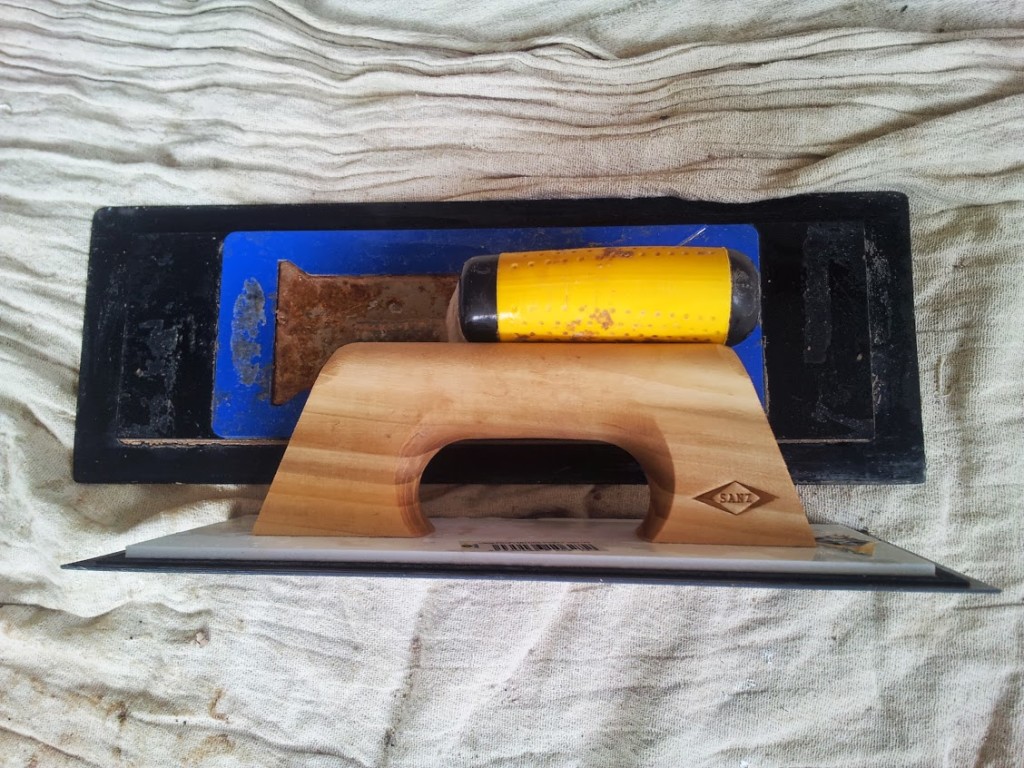




I would like to buy one of the trowels
Hi you will need to visit http://www.plasterers1stopshop.co.uk
Were can i get one. How much are they? I have been used a plastic trowel for the last 3 years. It really does polish up multi n biard finish a treat. Ive found that if you time it just right you dont need hardly any preasure whuch is great when you have had a heavy day skimming
http://www.plasterers1stopshop.co.uk and I think they are about £20
orange scrim is horrid too thick, its supposed to be a finishing trowel for your last go over.. i put 2 coats withing my refina superflex, 1st flat with 20″ steel marshalltown, water with nela and finish, want to know if its a less stress finish than the nela 2
Over here in Ireland there seems to be a problem with the plastic trowels leaving the plaster too smooth and the painters are complaining about the paint running. Is this a problem in England?
That is down to the plasterer thinking a polished surface is good… always matt and flat for me